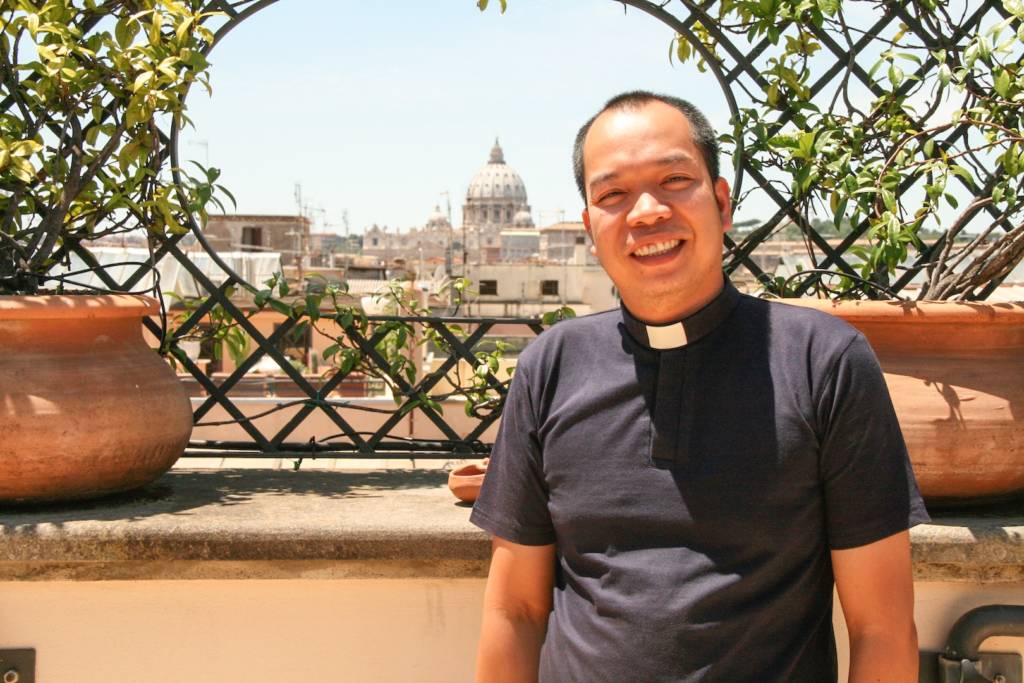By: Fr. Warren Puno
Last May 10-12, our church hosted more than 30 youth leaders from different parishes around Quezon Province, to participate in our first ever ecology youth camp.
The campers were given 3 days of intensive training by volunteer resource persons from Greenpeace Philippines, the Institute for Climate and Sustainable Cities and 350.org Pilipinas, who each imparted the importance of being involved in the great work of nurturing our environment and resisting the forces that seek to destroy it by putting the interest of profit over the diversity of life that thrives in the planet that we call our home.
From Quezon, Philippines to the world, the message is clear: Go #FossilFree! pic.twitter.com/mSgLAvP5Tb
— 350 East Asia (@350EastAsia) May 12, 2017
The camp was divided into 3 focus areas that are designed to take the participants into a journey of learning the key elements in environmental activism.
The first day was spent with understanding how the world works beginning with the salient point that our lives and journey is a part of a bigger and ongoing journey of the natural world and our human communities are part of this larger community of life. Afterwards, we ventured to learn about the science and politics of climate change and ended the day with exploring the solutions that can be found in renewable energy and energy efficiency.
Day two was all about equipping the participants with the needed disciplines for speaking truth to power, like understanding its nature, becoming aware of the different theories of change for social engagement and in developing campaigns.
Following the day’s workshop the participants had a mannequin challenge with the banners they made, demanding for a fossil-free future. Later we marched with our banners around town.
Anti-coal youth from Quezon, Philippines call for a #FossilFree future pic.twitter.com/BBPOoAFpl0
— 350 East Asia (@350EastAsia) May 11, 2017
The last day was spent with putting the things we learned to practice by developing ways to organize ourselves both online and offline and to find ways of campaigning using the readily available tools for digital activism.
Among the things that stood out in the camp was the exploration of Barry Commoner’s Four Laws of Ecology, which starts with: everything is connected to everything else.
For me it means that life on earth is a web and when enough links are cut, the whole web will collapse and the simplest interference to nature sets off a chain reaction. The climate crisis that now besets us stands as its clearest example. What is tragic is that at the same time, the human community itself is beset with crises of equally disastrous proportions, best exemplified by the few who wallow in scandalous wealth while millions suffer from appalling poverty.
While all this sound overwhelmingly dire and tragic, I find hope in the faces of the youth that participated in the camp, for they have already taken the first step of not only joining our struggle against the 1200-megawatt Atimonan power station, that’s already being constructed. Their presence signifies what the late Archbishop Oscar Romero refers to as seeds that one day will grow.
I also find comfort in knowing that what we did coincided with anti-coal protests actions lead by the Philippine Movement for Climate Justice in Bataan, Batangas, Caloocan, Cebu, Davao, Ozamiz, South Cotabato and Tacloban as part of the Global Divestment Mobilisation that directly challenges the social license of the fossil fuel industry.
Lastly, on the day the camp ended I learned that nine Catholic groups unite in pledge to divest from fossil fuels.
Climate change transgresses boundaries, of both natural and human-defined separations, of communities, of nation-states, of lands, of waters, of near and distant neighbors, of rich and poor, of different cultures and beliefs. Many of its effects know no boundaries. Yet some bear the brunt and the consequences far more than others, and are far more vulnerable.
Climate change reminds us that we are all in this together.
This challenges us to value our connection —because only people working and knowing their part in the complex web of life can bring about change that triumphs over the power of money and self interest and usher in a just and sustainable future for all.
Our connection is not only worth fighting for but is ultimately something that we should celebrate as we work together to heal our disconnected world.

Fr. Warren Puno, is the Parochial Vicar of Our Lady of the Angels Parish in Atimonan, Quezon. He is also the Priest-in-Charge of the Diocese of Lucena’s Desk on Environmental Concerns.
Photo: Hoda Baraka
